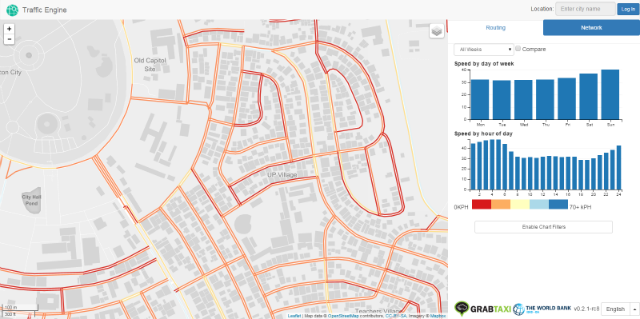Cities are complex and fast changing organisms, especially in low- and middle-income countries where rapid population growth, urbanization and technological advances are creating a dynamic mix of opportunity and challenge. One major issue facing many cities is road safety.
Open Traffic is an initiative of the Open Transport Partnership that aims to help improve transport planning, traffic management and safety by facilitating the delivery of detailed traffic data to cities. The partnership, led by the World Bank, along with its founding partners Mapzen, the National Association of City Transport Officials (NACTO) and WRI, will enable leaders to:
- Make informed, targeted decisions about sustainable urban mobility and road safety and
- Monitor the impact of these decisions, potentially saving thousands of lives and improving productivity too.
Open Traffic offers cities the opportunity to understand and measure the impacts of road safety interventions on safety and traffic flow. This applies both to identifying risks, such as dangerous speeds and the types of roads that encourage these, and measuring the impacts of traffic safety improvements, such as a street redesign or lowered speed limits.
Furthermore, it empowers cities to study the impacts of traffic safety interventions in a fraction of the time and cost previously required. The data generated by Open Traffic provides the opportunity to identify high speed areas to target, quickly establish a baseline, and review impacts of speed reduction, almost in real time. Most importantly, it allows decision-makers to convey messages about the benefits of these interventions in a clear and transparent way.
About OpenTraffic
OpenTraffic, forming as a nonprofit organization, is coordinating open source software development and data collection by individuals and organizations across the transport sector.


